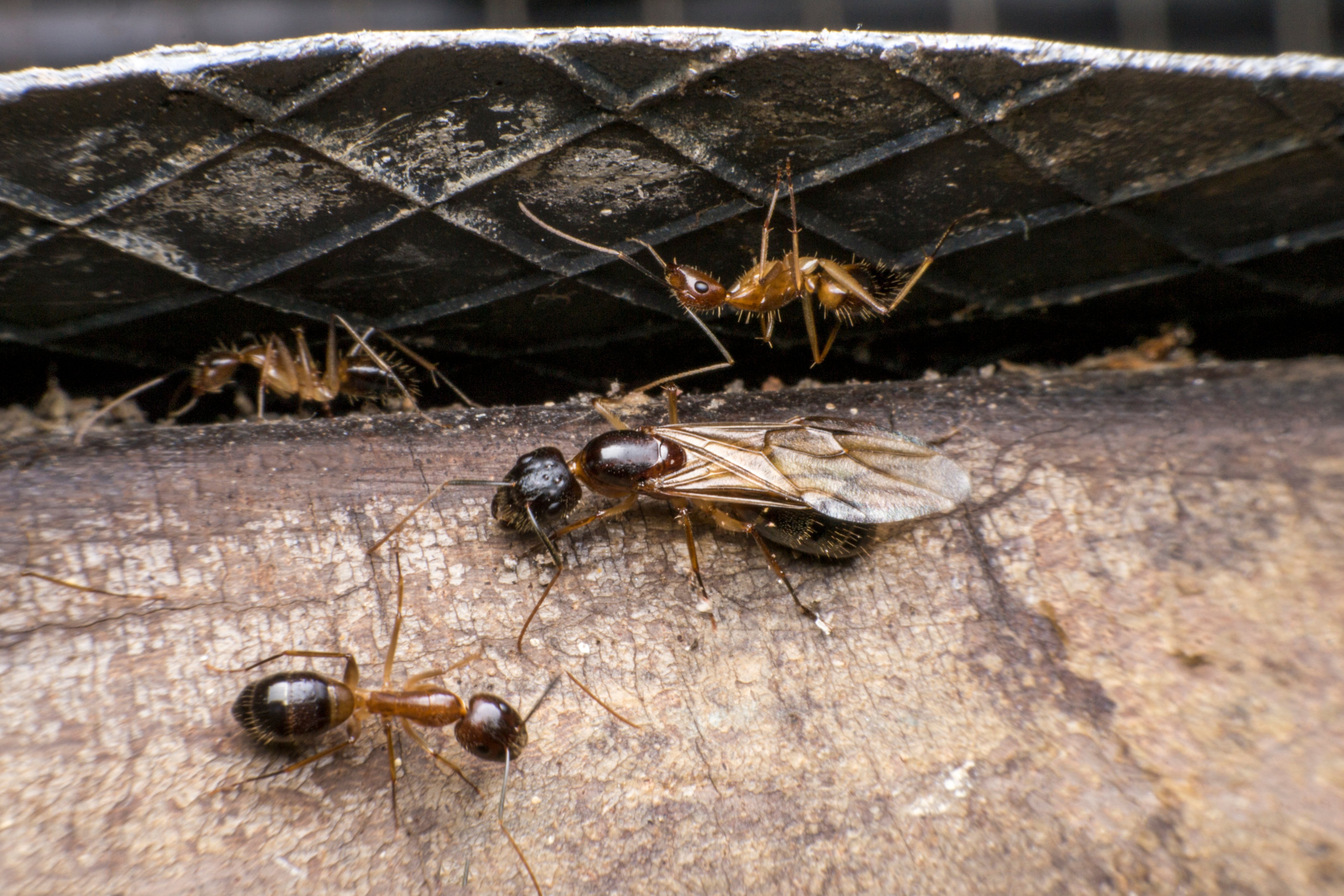How To Identify Carpenter Ants In Your Home

Dealing with carpenter ants in your home can be quite a headache. These tiny critters can cause some serious damage to the wooden structures in your house, and if left unchecked, you might end up facing expensive repairs. The key to avoiding such frustrations is to catch these pesky ants early on and get rid of them as soon as possible. In this article, we'll guide you through the process of identifying carpenter ants, figuring out if they're nesting in your home, and understanding why they decided to move in.
How to Identify a Carpenter Ant
Carpenter ants are usually bigger than your average house ant, at about 1/4 to 1/2 an inch long. They also come in different shades, from black or dark brown to red or even a red and black combo.
Carpenter ants have a segmented body, slim waist, and a curved thorax. What really makes them stand out are their bent antennae and the workers' strong mandibles for chomping through wood.
Carpenter ants are pretty versatile when it comes to nesting – they'll set up carpenter ant colonies indoors or outdoors using things like logs, stumps, or hollowed-out wood. They've got their main colonies with workers, baby ants, and egg-laying queens, while the smaller satellite colonies are home to workers, big larvae, and pupae.
Signs Carpenter Ants Are Chewing On Your Home
Carpenter ants can cause mayhem on your home's wooden structures, as they love to burrow into the wood and make cozy nests. If you want to catch these sneaky critters before they do too much damage, watch out for these signs:
- Little piles of "sawdust": If you spot what looks like sawdust near your wooden structures, it could be frass – a sure sign that carpenter ants are nearby.
- Strange sounds in the night: These ants are night owls! Listen for soft rustling or tapping noises in your walls, which could mean they're hard at work.
- Flying ants indoors: When it's time to reproduce, winged ants leave the nest. You've probably got a hidden nest if you find carpenter ants with wings on your West Chester property.
- Smooth, clean tunnels in wood: Carpenter ants are neat freaks, so check your wooden structures for smooth, gallery-like tunnels they've carved out.
- Ant trails at dusk: Keep an eye out for trails of worker ants looking for food in the evening – they might lead you straight to their home base.
If you spot any of these signs, act fast! Dealing with a carpenter ant infestation right away can save your home's structural integrity and your wallet from major headaches.

Causes For Carpenter Ants In The Home
Carpenter ants can't resist homes with damp or decaying wood, as these cozy spots make the perfect nesting sites. So if you've got leaks or water damage, you might just be rolling out the welcome mat for these uninvited guests. And once they're in, easy access to tasty treats like sweets, proteins, and greasy leftovers keeps them coming back for more. Don't forget that they're also pros at finding their way inside through gaps, cracks, and openings in your home's exterior. Addressing these issues is a must to get rid of carpenter ants.
The Most Effective Way to Get Rid Of Carpenter Ants
Eliminating carpenter ants requires a professional approach. Viking Pest Control offers targeted carpenter ant control, combining expert knowledge and advanced home pest control methods. Our specialists identify nests, devise customized strategies, and apply effective carpenter ant treatments, ensuring the infestation is eradicated. Protect your home and investment with the unparalleled expertise of Viking Pest Control. Contact us today for a comprehensive assessment.











